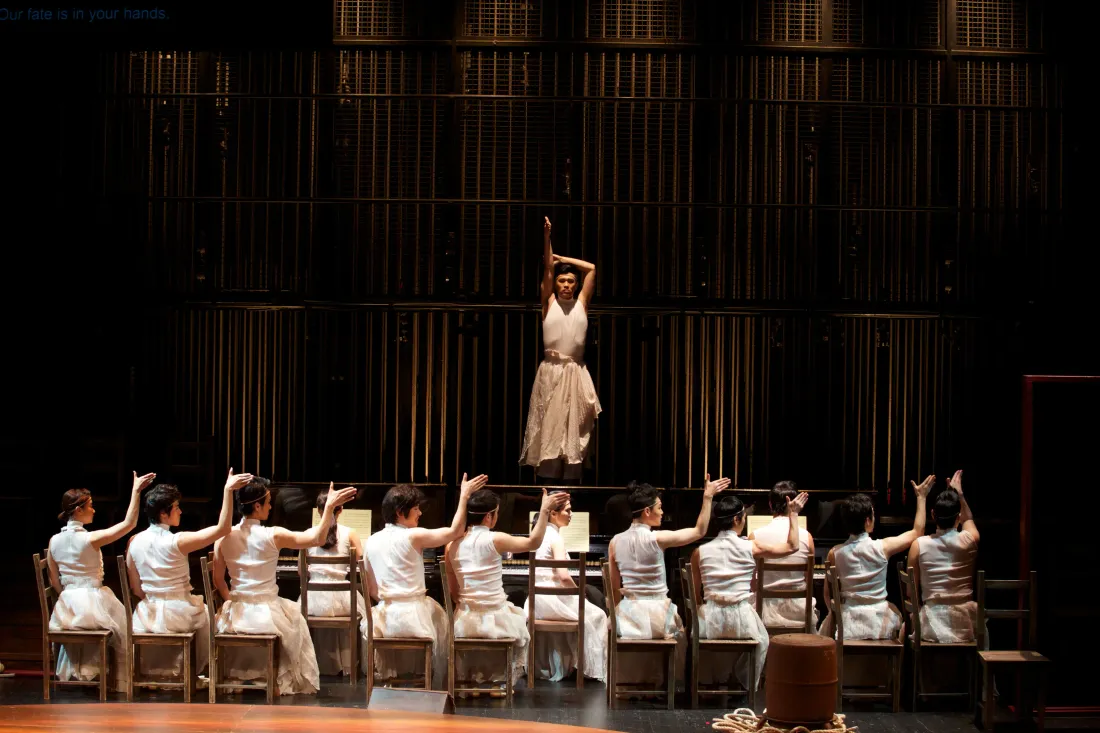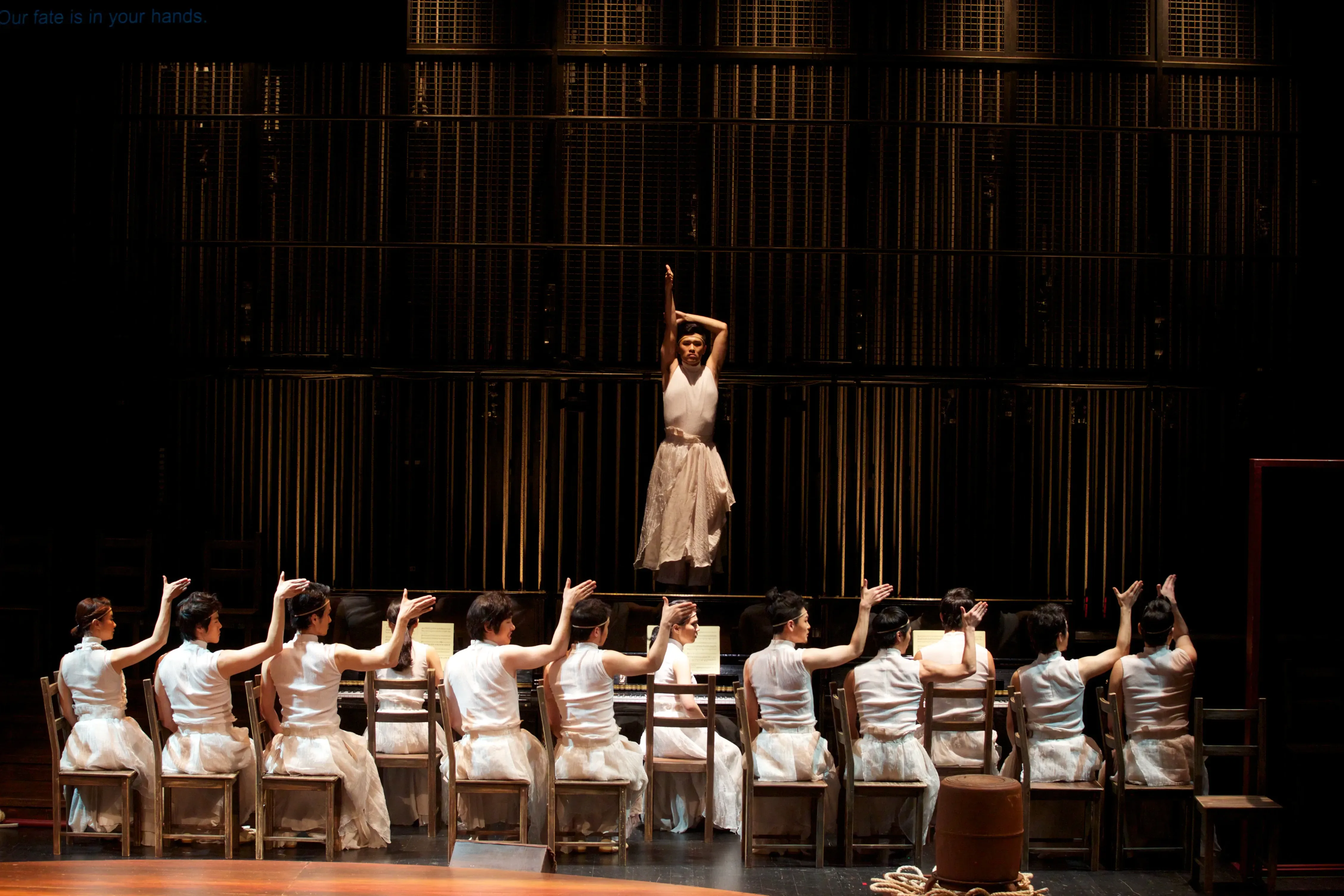Running with life
Written by


Contemporary Korean production company Juk-Dal live by their name. Derived from their first show the name means “running with life force and energy”. There is no sense of reprieve; the story and the form always aspire to go beyond, exceeding expectations. It is a shared commitment that playwright and librettist Han Areum and director Seo Jae-Hyung have had for the past 12 years and shapes their work.
“We decided to explore the Oedipus story because we wanted to take it back to the original Greek narrative,” explains Han. “We wanted to create a stripped back world where the chorus took centre stage to bring alive the dynamics of a modern Korean society and our ongoing human sensibilities.”
Both Han and Seo are experienced theatre makers and Han is a leading example of female playwrights in Korea, considered a mentor to many emerging artists. “In Korea gender isn’t really an issue. In fact female playwrights are often doing better than men.”
When choosing to peer through this tragic tale of a young king who must inevitably find out that he killed his father and slept with his mother – Han refused any particular lens to frame the work. Instead, she was committed to a humanist perspective that re-centred the tragedy upon the individual.
“If you go back to the Greek root of the word Oedipus, it means swollen foot. Some may call it destiny that you have such a disability but the person is still responsible for moving his foot, he must find has path and in turn, he must take responsibility for the path and the choices he makes.”
It’s this emphasis on the individual and not the forces of fate that also contribute to Han’s unique aesthetic. “Empathy and reinvention are essential. But while we have the story and we have the form - without the ensemble we have nothing. Without the masses, the people, and the decision for even a member to stand up and take a role for his own, we do not experience the fullness of what it is to be human.”
Those familiar with the story would know these lines:
I am no god.
I have lived, and
I have loved them,
And so I suffer.
It is this sense of entwining both the intimate and epic that Han captures but not merely through spoken text. The Chorus thrives on its blurring of contemporary theatrical boundaries and magnifies both the use of music and its choral elements.
“Our emphasis is to find an appropriate and unique expression. Through the ensemble, our chorus, we can capture this journey of someone who is tortured by the decisions that he has made. Simultaneously, the poetry of Korean culture and our musical sensibility return that drama back to the ancient Greeks.
“Ultimately, Oedipus is only a mere man. But how he navigates amongst all the external influences must lead him to make choices for himself. This is what our company want to explore: the notion that you keep going, keep running, until your last breath.”
It’s a powerful close to our short interview at Q theatre and, although our conversation was facilitated through Hayley Kim’s translations, there is no doubt that Han Areum’s passion for contemporary re-telling of ancient tragedies is driven by an wavering commitment – to keep running until the end.
For those who are yet to experience the sophistication of modern Korean performance The Chorus promises to be a powerful production that broadens our palette of theatrical expression.
- The Chorus; Oedipus is on March 17-20, Q Theatre, at Auckland Arts Festival 2016.
LG Arts Centre and Juk-dal (Republic of Korea)
Script and Lyrics: Han Areum
Director: Seo Jae-Hyung
Composer: Choe UzongPerformed in Korean with English surtitles